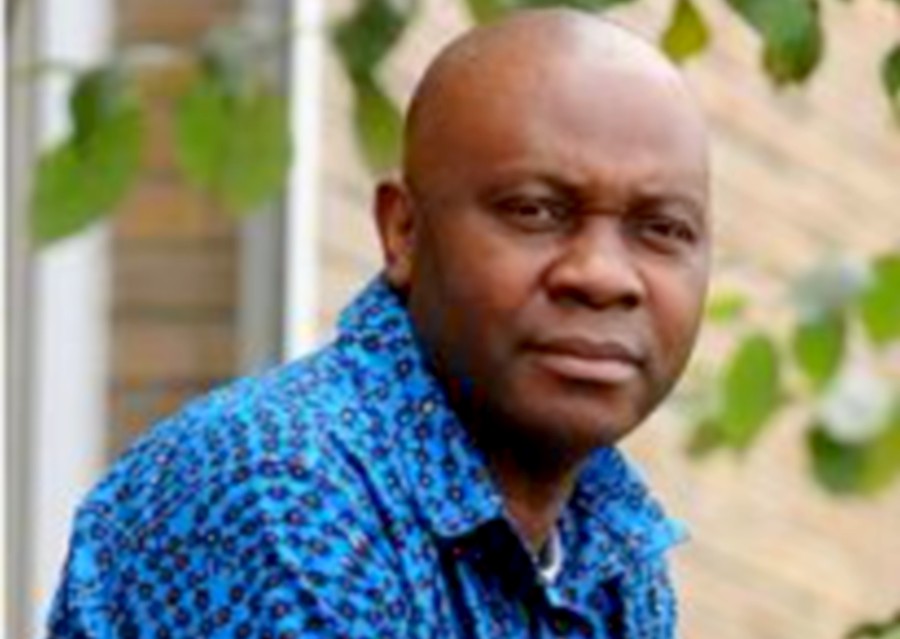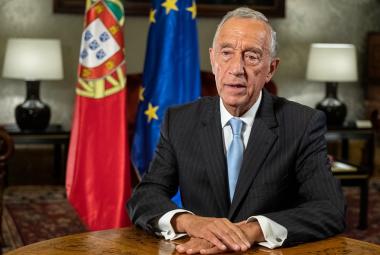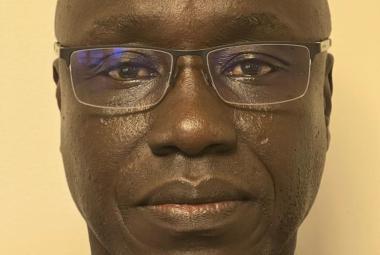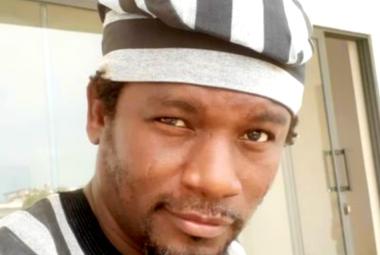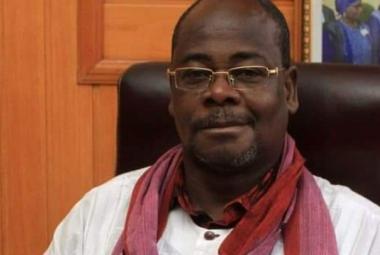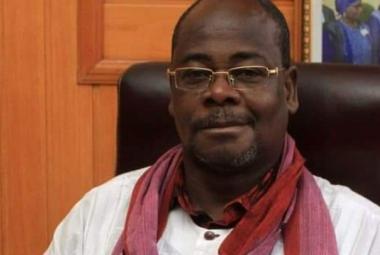Negritude and its extensions
The extensions of Negritude are based here on a double aspect: the extension of this concept and its relevance.
The extension of the concept of Negritude
Solidarity is one of the elements that enter into the Cesairian definition of Negritude. It is that the word 'Negro' concerns all people belonging to the Black race: the Negroes of Black Africa, the Dravidians of India, the Papuans of New Guinea, indigenous Australians, etc. Despite the undeniable diversities, writes Bimwenyi, one recognizes more and more "a deep 'cultural unity' between these Negro-African peoples, perceptible in the outline of the conception of the world, visible and invisible, of man, of the integral family, subsolar and beyond the grave, of the fundamental aspirations of man and of the community, of an initiatory type of pedagogy, of religion, of marriage, without forgetting a certain 'similarity of the techniques of acquisition and production and their low profitability'” (J. Maquet). This cultural unity played a big role in Black fraternization.
In Africa, there has sometimes been a temptation to underestimate the importance of the racial factor inherent in the concept of “Negritude” in favor of that of class. In truth, the oppression of Black people is not only socio-economic, but also racial. We come back to the theme of anthropological poverty which appears, in the eyes of E. Mveng, as the key to interpreting the history of African societies. Indeed, the situation of the African cannot be reduced to the problem of economic aggression or human rights. It is about a whole humanity that has been denied in a pure and simple way. It is the whole “human condition, in its deepest root, which has been damaged, traumatized, impoverished. African poverty is an anthropological poverty” whose “multiple expression” materializes on the political, economic, sociological, cultural and spiritual levels”.
The ‘also-tal’ discourse
Bimwenyi knows that the word 'also' is one of the keys to interpreting the productions of Negritude. He distinguishes, among other things, the 'also' characteristic of the forfeiture of the assimilated, the 'also' of the claim and the concessive 'also'.
The first is that of the assimilated who expresses “his hope or his pride in having finally managed to enter ‘the master’s salon’”. This is the case of Africans who “compete on their knees, who in front of Aristotle, who in front of Hegel, etc. Result for the less incongruous, they more than once mistreated their 'Ancestors', dragging them - consciously or not - before a 'philosophical' Jury sometimes chaired by Descartes, Kant and Hegel, or by other luminaries of thought western. The Negro-African patriarchs did not ask for so much and probably did not need it.
The second is “a knock on the master’s table, a refusal of ‘assimilation’, a claim to one’s own ‘identity’”. The third is the concessive or tactical approach of the former master who, more or less opportunistic or under the pressure of events, throws down ballast, suddenly discovering a thousand and one virtues, a thousand and one qualities which, even yesterday, he sees only flaws , vices and stupidity! ". And this from its promontory and its model set up as an absolute.
Relevance of Negritude
The “also” explosives, claims and tactics mentioned above pose threats to the future. The equally-tal discourse is impertinent in a context where Africa is the native land of humanity. Suffice it to focus on the theology to support our argument. How could Africa not prefer the Great Hymn of Akhenaten? How would it be led to take the paths of a crazy discourse of monotheism to the detriment of mono-originism so rich in terms of content and relevance? Why should she forget that "the universal documentation of the history of Humanity reveals today that the concept of the existence of a unique God, creator of the universe and of biodiversity has as its cradle Africa black " ? And the same goes for the concept of Holy Scriptures. If the Mdw Ntr (Médou Nétjer) - Words of God or better Holy Scriptures or Divine Scriptures - "appeared in Africa around 3500 years before the Christian era, our ancestors were therefore the initiators of Humanity on the paths of spirituality ». A fact confirmed by Diodorus of Sicily. It is up to the West to say: 'us too'.
Moreover, the request for a place of its own, of the “Qua africanum” (the African qua African), obliges us to turn our backs on the Senghorian Negritude of “emotion is Negro, reason is Hellenic” which does not does not convey historical truth.
The Retour au pays natal (Return to the native country) is essential. Return to the meaning of a pilgrimage to the sources. We must insist on a return that fundamentally marks our whole being instead of appearing as a borrowed personality: ontological, epistemological, theological return, etc. It is therefore not a recourse to which a siren of modernity would conform from the Alps, far from Kilimanjaro. But what does 'return' mean if there is no pride in being a Negro? Proud of this pride which must be actualized in everyday acts. It is necessary, for each Negro, to become another man animated by a historical consciousness and a "Prometheus bearer of a new civilization and perfectly aware of what the whole earth owes to his ancestral genius in all fields of science, culture and religion.
Well perceived, Negritude makes it possible to reconnect with one's roots in such a way as to win the battle for integral development. It had and is responsible for constituting “a community of suffered oppression and a community of imposed exclusion”, “a community of continuous resistance” and of “stubborn struggle for freedom and indomitable hope”. It was not a metaphysics or a conception of the world. According to A. Césaire, it was “…a way of living history within history: the history of a community whose experience appears, to tell the truth, to be singular with its deportations of populations, its transfers of men from from one continent to another, the memories of distant beliefs, its remnants of murdered cultures (…). Negritude results from an active and offensive attitude of the mind. It is a start, and a start of dignity. It is the refusal, I mean of the oppression. It is a fight, that is to say a fight against inequality. It is also revolt (…) against what I would call European reductionism. I want to talk about this system of thought or rather the instinctive tendency of an eminent and prestigious civilization to abuse its very prestige to create a vacuum around it by abusively reducing the notion of universal (…) to its own dimensions, in other words, to think the universal from its own postulates and through its own categories”.
The Negro world finds itself today faced with the need for this founding Negritude of dignity, personality, independence and sovereignty. We are witnessing wars for the control of strategic and energy minerals in the D.R. Congo, in Chad, in Sudan, we are witnessing the re-edition of the culture of hatred and the victimization of the African in all corners of the West. What brings some Africans, did we write in Tired of being African? to surrender to melancholy, lassitude, fatigue and exhaustion. At the time of writing these lines, we remember the insulting words uttered by the former Swiss Federal Councilor Christophe Blocher vis-à-vis the Africans whom he all called lazy. We also remember the xenophobic hunt against African foreigners in South Africa. It was May 11, 2008.
In theology, we think of the distortions of a biblical text like that of the Song of Songs which allow ideologues and their sirens to proceed with a devaluing hermeneutics of the Negro. The author of the Song of Songs bursts out: “I am black and beautiful” (Song 1, 5). This is quite the opposite of the reading that is imposed in a good number of Churches and places of worship in Africa where one privileges: “I am black and yet beautiful”. However, when we are at the level of the foundations, we should in any case remember the following: Melaina eimi kai kale expresses, in Greek, the real meaning of “I am black and beautiful”; in the authentic Latin version, we write: nigrasum and formosa; in Coptic: ink kmt: there is the “I am” and the kmt which, in Egyptian, means Black, beautiful and perfect.
There is no need to list all the evils suffered by Black peoples which show us that the objectives of dignity pursued in its time by Negritude are of burning relevance and usefulness to act, conquer and reconquer our place in the world.
The time to take responsibility and initiate a reconciliatory synthesis
Whatever his current geographical location on the planet, all Kam is a Negro! And every Nigger is a Kam. The problems of exclusion, alienation and predation, social and economic instability; the genocides, the extermination that Kam suffers wherever he finds himself come from his being a Negro. It is his being a Negro or Kam that poses a problem for others. It is his color, it is he himself who is reviled. It is his very humanity that is rejected, because he is what he is, Nigger.
Kam is a physical, anthropological evidence. He cannot hide. He is a Negro, we see it, we know it, regardless of whether he was born and raised in Europe (cf. Afropeanity) or the time he spent outside his native land. And only as such will he begin to find solutions to his existence. He must have the courage to accept it and the intelligence to seek the solidarity of all his brothers.
In line with Leonora Miano, the responsibility lies with the Afropeans of the European diaspora to mobilize for the creation of solidarity networks and for the promotion of Afro-descendant knowledge that has long been invisible. The requirement of a reconciling synthesis would consist of starting from the appropriation or reappropriation of the African cultural promontory to initiate a dialogue with the other without managing to lose its soul. On this account, should the Afropean ideal be kept at a distance from the project of interculturalitology or from what is elsewhere called culturology? It seems not. The perspective of living together imposes itself at the heart of so many frustrated identities.
Prof Kalamba Nsapo
Research Director at INADEP
University Faculty of Protestant Theology of Brussels
CARES Research Center
*This article has been translated from French into English by Marcus Boni Teiga



